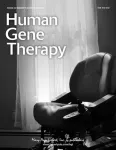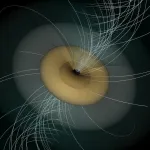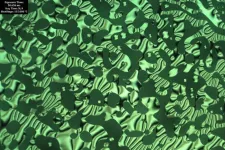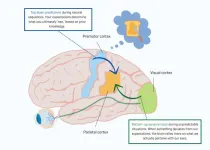(Press-News.org) COLUMBUS, Ohio – For the first time, teachers in a nationwide study have told researchers what strategies they think work best to deal with student violence against educators.
Teachers rated suspending or expelling students as the least effective way of addressing violence, despite the popularity of “zero tolerance” policies in many school districts.
Instead, teachers rated prevention policies, such as counseling for troubled students and improving school climate, as the best strategy for dealing with violence.
“Teachers are the experts on the ground, and our results show that they believe prevention strategies are the ones that really work best in the schools, much more so than excluding kids who get into trouble,” said Andrew Perry, lead author of the study and a postdoctoral scholar in the Department of Educational Studies at The Ohio State University.
The study was published online recently in the journal School Psychology.
Results showed that schools’ use of exclusionary discipline practices – such as expulsion or suspension of students – was linked to a higher likelihood of teachers reporting violence against themselves. That could include verbal attacks and threats, and physical and property violence.
That may be because suspending or expelling students makes them angrier and leads to more violence, said study co-author Eric Anderman, professor of educational psychology at Ohio State.
“Removing the student doesn’t make the school safer in the long run,” Anderman said. “And it certainly doesn’t address the underlying issue of what caused the violent behavior in the first place.”
Data for the study came from a web survey, done in 2020-21, of 4,471 pre-K to 12th grade teachers from across the country.
Teachers reported on whether their school used 21 common safety measures. These measures fit into four categories. Along with exclusionary discipline and prevention measures, the other two categories were school hardening (such as use of metal detectors and security cameras) and crisis intervention (such as using physical restraint during violent episodes).
Teachers also rated their school’s effectiveness at using the 21 safety measures.
Finally, participants rated how often they experienced 13 different types of violence from students in the past year.
Results showed that more than 95% of teachers reported their schools used all four categories of school measures addressing violence.
Teachers rated prevention as the most effective strategy for dealing with violence. Crisis intervention was rated second, school hardening was third and exclusionary practices were rated as least effective.
In general, the more effective teachers thought strategies were at addressing violence, the less violence they reported against themselves, Perry said.
As mentioned earlier, use of exclusionary practices was associated with more reports of violence against teachers. Use of prevention practices and school hardening had no association with teachers’ reports of violence. Use of crisis intervention was associated with a relatively small higher likelihood of violence.
Overall, the results show that the experiences of teachers agrees with previous research showing that suspending and expelling students doesn’t help make schools safer, Anderman said.
That’s concerning because, in some local school board elections, candidates have run on zero-tolerance policies that would make exclusionary policies even more entrenched.
“There are some people who think that the answer to school violence is to get the bad kids out of school, but our data shows that teachers don’t think that works,” Anderman said. “Other research supports that view.”
What does seem to work is prevention policies, Perry said. Offering counseling to students rather than keeping them out of school is one such measure. Another is to improve school climate so that teachers, students and administrators work together to make the school a place where they all want to be.
“These are proactive approaches that schools can use to try to reduce and prevent violent events before they occur,” Perry said.
Anderman said teaching social-emotional skills in school – such as self-awareness, self-control and interpersonal skills – can be an important part of violence prevention, even though some critics want schools to only focus on “reading, writing and arithmetic.”
This preventive approach is similar to that used by public health officials to prevent disease and chronic health issues.
“Public health experts know that it is easier and less costly to pay for a test that can identify a health problem early than to pay for treatment later,” Anderman said. “Schools can take a lesson from that to prevent violence.”
The study was part of the work of the American Psychological Association Task Force on Violence Against Teachers and School Personnel.
Other co-authors on the study came from the Center for Justice Innovation, Rutgers University, DePaul University, University of California, Los Angeles, University of North Carolina at Chapel Hill and the University of California, Berkeley.
END
How teachers would handle student violence against educators
They believe suspensions, expulsions don’t work, study finds
2023-11-14
ELSE PRESS RELEASES FROM THIS DATE:
New CPU vulnerability makes virtual machine environments vulnerable
2023-11-14
In the area of cloud computing, i.e. on-demand access to IT resources via the internet, so-called trusted execution environments (TEEs) play a major role. They are designed to ensure that the data on the virtual work environments (virtual machines) is secure and cannot be manipulated or stolen. Researchers at the CISPA Helmholtz Centre for Information Security and Graz University of Technology (TU Graz) have now discovered a security vulnerability in AMD processors that allows attackers to penetrate virtual work environments based on the trusted computing technologies AMD SEV-ES and AMD SEV-SNP. This is achieved by resetting data changes in the buffer memory (cache), which gives ...
Peer educators play key role in new recipe development and testing
2023-11-14
Philadelphia, November 14, 2023 – Cooking and recipe demonstrations encourage healthy eating and adoption of unfamiliar foods by class participants. The research brief shared in the Journal of Nutrition Education and Behavior, published by Elsevier, demonstrates that valuable input by peer educators can be obtained through a hybrid home-use testing method.
The process of recipe development involves sensory evaluation about the appearance, aroma, taste, texture, and flavor of the food. Although a controlled laboratory setting is the gold standard for evaluation because of consistent preparation and presentation of food, bringing peer educators to a ...
Advances and challenges in gene therapy for rare diseases
2023-11-14
New Rochelle, NY, November 13, 2023—A new review article in the peer-reviewed journal Human Gene Therapy summarizes the significant milestones in the development of gene therapy medicinal products that have facilitated the treatment of a significant number of rare diseases. The article also describes the challenges in the progress of gene therapy for rare diseases. Click here to read the article now.
Juan Bueren, from Centro de Investigaciones Energéticas Medioambientalies y Tecnológicas (CIEMAT), ...
What factors influence PrEP prescribing behavior in health care providers?
2023-11-14
HIV pre-exposure prophylaxis (PrEP), a daily dose of two medications meant to prevent HIV infection in high-risk people, has changed public health dramatically in recent years. Yet, adolescents and young adults, one high-risk group, have shown slower uptake in using this prevention method.
Despite accounting for around 20 percent of new HIV infections, adolescents and young adults between the ages of 13 and 24 are still largely not being prescribed PrEP. Research has described physician intentions to prescribe PrEP to at-risk young people, but no studies until now have focused on factors that may affect actual prescribing of this evidence-based ...
ASCE establishes Dan M. Frangopol Medal for Life-Cycle Civil Engineering of Civil Structures
2023-11-14
The American Society of Civil Engineers (ASCE) recently instituted the Dan M. Frangopol Medal for Life-Cycle Engineering of Civil Structures in recognition of the Lehigh Engineering professor’s contributions as a pioneering researcher and educator and leading authority in the fields of life-cycle civil engineering and life-cycle cost optimization.
The award pays tribute to Frangopol, the inaugural Fazlur R. Khan Endowed Chair of Structural Engineering and Architecture in the Department of Civil and Environmental Engineering ...
Webb Telescope’s Marcia Rieke awarded Catherine Wolfe Bruce Gold Medal
2023-11-14
Dr. Marcia Rieke, principal investigator for the Near-Infrared Camera on NASA’s James Webb Space Telescope is the Astronomical Society of the Pacific’s (ASP) 2023 recipient of its most prestigious award. ASP’s Catherine Wolfe Bruce Gold Medal honors Rieke, a Regents Professor of astronomy and Elizabeth Roemer Endowed Chair, Steward Observatory, at the University of Arizona. Rieke’s award and achievements was recognized at the ASP Awards Gala on Saturday, Nov. 11, in Redwood City, California.
Groundbreaking Contributions
Rieke’s research has focused on infrared observations of ...
Galactic ‘lightsabers’: Answering longstanding questions about jets from black holes
2023-11-14
The one thing everyone knows about black holes is that absolutely everything nearby gets sucked into them.
Almost everything, it turns out.
“Even though black holes are defined as objects from which nothing can escape, one of the astonishing predictions of Einstein’s theory of relativity is that black holes can actually lose energy,” says astrophysicist Eliot Quataert, Princeton’s Charles A. Young Professor of Astronomy on the Class of 1897 Foundation. “They ...
Researchers identify unexpected twist while developing new polymer-based semiconductors
2023-11-14
CHAMPAIGN, Ill. — A new study led by chemists at the University of Illinois Urbana-Champaign brings fresh insight into the development of semiconductor materials that can do things their traditional silicon counterparts cannot – harness the power of chirality, a non-superimposable mirror image.
Chirality is one of nature’s strategies used to build complexity into structures, with the DNA double helix perhaps being the most recognized example – two molecule chains connected by a molecular “backbone” ...
Immigrants living in the U.S. have fewer preterm births
2023-11-14
Preterm birth predicts lifelong health outcomes
Worsening preterm birth rates in the U.S. represent a ‘key metric to target to improve overall societal health’
Study identifies key differences among Asian and Hispanic subgroups
Minority stress could contribute to inequities that begin at birth between populations in the U.S.
CHICAGO --- Preterm birth rates are an important marker in assessing a country’s overall health. And the United States isn’t fairing very well.
Individuals born in the U.S. had an overall higher rate (9.7%) of giving birth prematurely compared to U.S. immigrants (9%), a new Northwestern Medicine ...
When we see what others do, our brain sees not what we see, but what we expect
2023-11-14
When we see what others do, our brain sees not what we see, but what we expect
When we engage in social interactions, like shaking hands or having a conversation, our observation of other people’s actions is crucial. But what exactly happens in our brain during this process: how do the different brain regions talk to each other? Researchers at the Netherlands Institute for Neuroscience provide an intriguing answer: our perception of what others do depends more on what we expect to happen than previously believed.
For some time, researchers have been trying to understand how our brains process other people’s ...
LAST 30 PRESS RELEASES:
Kidney cancer study finds belzutifan plus pembrolizumab post-surgery helps patients at high risk for relapse stay cancer-free longer
Alkali cation effects in electrochemical carbon dioxide reduction
Test platforms for charging wireless cars now fit on a bench
$3 million NIH grant funds national study of Medicare Advantage’s benefit expansion into social supports
Amplified Sciences achieves CAP accreditation for cutting-edge diagnostic lab
Fred Hutch announces 12 recipients of the annual Harold M. Weintraub Graduate Student Award
Native forest litter helps rebuild soil life in post-mining landscapes
Mountain soils in arid regions may emit more greenhouse gas as climate shifts, new study finds
Pairing biochar with other soil amendments could unlock stronger gains in soil health
Why do we get a skip in our step when we’re happy? Thank dopamine
UC Irvine scientists uncover cellular mechanism behind muscle repair
Platform to map living brain noninvasively takes next big step
Stress-testing the Cascadia Subduction Zone reveals variability that could impact how earthquakes spread
We may be underestimating the true carbon cost of northern wildfires
Blood test predicts which bladder cancer patients may safely skip surgery
Kennesaw State's Vijay Anand honored as National Academy of Inventors Senior Member
Recovery from whaling reveals the role of age in Humpback reproduction
Can the canny tick help prevent disease like MS and cancer?
Newcomer children show lower rates of emergency department use for non‑urgent conditions, study finds
Cognitive and neuropsychiatric function in former American football players
From trash to climate tech: rubber gloves find new life as carbon capturers materials
A step towards needed treatments for hantaviruses in new molecular map
Boys are more motivated, while girls are more compassionate?
Study identifies opposing roles for IL6 and IL6R in long-term mortality
AI accurately spots medical disorder from privacy-conscious hand images
Transient Pauli blocking for broadband ultrafast optical switching
Political polarization can spur CO2 emissions, stymie climate action
Researchers develop new strategy for improving inverted perovskite solar cells
Yes! The role of YAP and CTGF as potential therapeutic targets for preventing severe liver disease
Pancreatic cancer may begin hiding from the immune system earlier than we thought
[Press-News.org] How teachers would handle student violence against educatorsThey believe suspensions, expulsions don’t work, study finds






